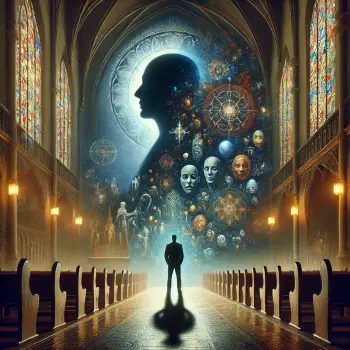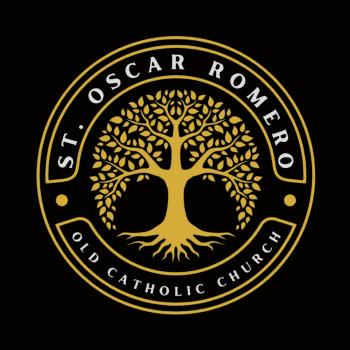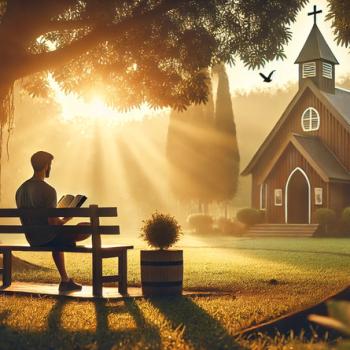Eid al-Adha begins on the tenth day of Dhu al-Hijjah, the final month of the Muslim calendar. And although the celebration lasts for four days, the first day is considered the primary holiday. Of course, there's plenty to celebrate when millions of pilgrims complete the days of ritual that mark the Hajj, and there are no shortages of huge feasts. But there's more to Eid al-Adha than just partying at the end of an intense spiritual experience. The holiday is also designed to commemorate a central story in the Qur'an, in which Allah (God) tells Ibrahim (Abraham) to sacrifice his son, and the dutiful Ibrahim agrees. If the story sounds familiar, that's because there's a similar one in the Old Testament. In the biblical version, however, Isaac is the one who's supposed to be sacrificed; in the Qur'an, it's Ishmael, Ibrahim's other son. But the moral remains the same. Ibrahim proves he's willing to make the ultimate sacrifice by killing his own child, until God stops him and instructs him to sacrifice a sheep instead.
To celebrate the love and obedience displayed by Ibrahim, a central ritual of Eid al-Adha is animal sacrifice. Muslims kill a lamb or other animal, then keep about one-third for themselves while distributing the rest to friends, family, and especially the poor and sick. It's not all about sacrifice, though. Families also celebrate the joyous occasion by gathering together to exchange gifts, and individuals visit shrines to recite a special prayer, or salah, among a large congregation.
6. Buddhism: Buddha's Birthday
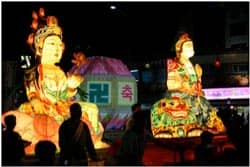 If you've got any clue who's buried in Grant's tomb or what color George Washington's white horse was, then we won't ask you to guess who was born on Buddha's birthday. The answer, of course, is Siddhartha Gautama, the founder of Buddhism. Also known as Shakyamuni, Gautama Buddha, or just "the Buddha," Siddhartha was a Himalayan prince who left behind his sheltered royal world to pursue enlightenment. Sure enough, he found it, and a new religion was born.
If you've got any clue who's buried in Grant's tomb or what color George Washington's white horse was, then we won't ask you to guess who was born on Buddha's birthday. The answer, of course, is Siddhartha Gautama, the founder of Buddhism. Also known as Shakyamuni, Gautama Buddha, or just "the Buddha," Siddhartha was a Himalayan prince who left behind his sheltered royal world to pursue enlightenment. Sure enough, he found it, and a new religion was born.
Today, Buddhists celebrate the birth of Siddhartha Gautama as their religion's primary holiday. Yet, festivities commemorating the special occasion differ from country to country; even the date and duration of the holiday varies. Traditionally, it falls on the eighth day of the fourth month on the Chinese lunar calendar, which is when people in places such as Hong Kong, Taiwan, and South Korea typically observe the occasion. However, in Japan, where it's known as the Flower Festival, Buddha's Birthday is always celebrated on April 8. In other countries, such as India, Thailand, Vietnam, and Malaysia, the holiday goes on for an entire month, though one day -- Vesak, which coincides with the first full moon in May or June -- is the most important. On that day, Buddhists in these places recognize not only the Buddha's birth, but also his enlightenment and death.
No matter where you are, most Buddhist traditions on this holiday revolve around studying Buddha's life, listening to sermons about him, venerating images of the Buddha, and visiting monasteries. Some devotees perform a ceremony in which they pour sweet tea over a statue of the baby Siddhartha to recall the legend that sweet tea rained down from the skies when the future Buddha was born.
In Japan, people often attend joyous parades filled with all sorts of papier-mâché floats, including giant white elephants to symbolize the Buddha's arrival from India. Others simply bathe their Buddha statues in water, a reminder that everyone's heart should be clean and pure. Another one of the day's primary rituals involves showing signs of Buddha-like compassion, namely, abstaining from killing of any kind. Many Buddhists refrain from eating meat, and in Sri Lanka, slaughterhouses are even closed. In a further act of liberation, it's common for people to release caged birds or make origami birds and float them down a river. Finally, many Buddhists take this opportunity to make a pilgrimage to Lumbini, in modern-day Nepal, which is believed to be the Buddha's birthplace.
7. Hinduism: Diwali
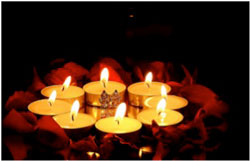 Light the lamps and break out the fireworks; Rama has returned victorious from his struggle against the evil demon king! At least, that's one of the events commemorated during Diwali, the Hindu festival of lights. Depending on whom you ask, Diwali is also a time to honor Lakshmi, the goddess of wealth, and to celebrate Krishna's successful battle with a demon of his own. Whatever the reason, Diwali is a favorite festival for Hindus around the world, a time to celebrate the victory of good over evil and light over darkness.
Light the lamps and break out the fireworks; Rama has returned victorious from his struggle against the evil demon king! At least, that's one of the events commemorated during Diwali, the Hindu festival of lights. Depending on whom you ask, Diwali is also a time to honor Lakshmi, the goddess of wealth, and to celebrate Krishna's successful battle with a demon of his own. Whatever the reason, Diwali is a favorite festival for Hindus around the world, a time to celebrate the victory of good over evil and light over darkness.
